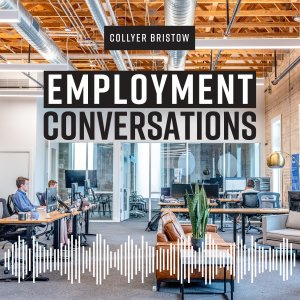- Coronavirus
- Employment law for employers

Shorter Reads
Sick pay cuts for the isolating unvaccinated: what are the legal implications?
This week Ikea has become the latest company to cut sick pay for unvaccinated staff who need to self-isolate because of exposure to someone who has tested positive for Covid. What are the legal implications for these policies?
1 minute read
Published 11 January 2022
Key information
- Services
- Coronavirus
- Employment law for employers
This week Ikea has become the latest company to cut sick pay for unvaccinated staff who need to self-isolate because of exposure to someone who has tested positive for Covid. Similar policies have been implemented by Wessex Water and Morrisons and it appears that a growing number of companies have decided to take the risk of imposing such a policy.
These changes come amid the current crisis of mass employee absences, triggered by omicron, which is hitting every sector of the economy. Those who have received two doses of the vaccine (where the second dose was more than 14 days ago) no longer have to isolate upon contact with a positive Covid case, provided that they comply with testing requirements. In contrast, those who do not meet these criteria must isolate for at least 7 days, in many cases rendering them unable to work even if they do not have symptoms and do not test positive for the virus.
There are two types of sick pay: a) statutory sick pay (“SSP”) which is governed by legislation and available to all qualifying employees; and b) contractual sick pay (usually full pay), which is optional, and is usually set out in the employment contract or related policy. The government made SSP available to those isolating early on in the pandemic. It is contractual sick pay that employers are electing to cut for isolating unvaccinated employees (although they are still proposing to pay contractual sick pay to any employee who has contracted Covid).
Such a policy is not without risk. Employers who have implemented these policies have not yet been challenged in the courts or employment tribunals and therefore there is uncertainty as to their lawfulness. Employers could be exposed to discrimination claims by unvaccinated employees on the grounds of religion, belief, disability or potential pregnancy. There could also be potential human rights arguments, such as the right to a private life, or the right to freedom of thought, conscience and religion under the European Convention on Human Rights (which is unaffected by Brexit).
Technically a ‘consultation’ with employees is likely to be required as it involves a change to employees’ terms of employment, and such a policy could be controversial and disruptive to employee relations with a knock-on effect to poor staff morale and an increased turnover.
There is also a concern that employees will not isolate when required given the adverse financial impact for them, which could be significant given that SSP is only £96.35 per week.
Presumably, companies implementing these policies have taken legal advice but ultimately concluded that the financial benefit, and hoped reduction in staff absences through higher levels of vaccination, outweigh the risks for now. However, for many other companies, these risks may be too big to take.
Shorter Reads
Sick pay cuts for the isolating unvaccinated: what are the legal implications?
This week Ikea has become the latest company to cut sick pay for unvaccinated staff who need to self-isolate because of exposure to someone who has tested positive for Covid. What are the legal implications for these policies?
Published 11 January 2022
Associated sectors / services
Authors
This week Ikea has become the latest company to cut sick pay for unvaccinated staff who need to self-isolate because of exposure to someone who has tested positive for Covid. Similar policies have been implemented by Wessex Water and Morrisons and it appears that a growing number of companies have decided to take the risk of imposing such a policy.
These changes come amid the current crisis of mass employee absences, triggered by omicron, which is hitting every sector of the economy. Those who have received two doses of the vaccine (where the second dose was more than 14 days ago) no longer have to isolate upon contact with a positive Covid case, provided that they comply with testing requirements. In contrast, those who do not meet these criteria must isolate for at least 7 days, in many cases rendering them unable to work even if they do not have symptoms and do not test positive for the virus.
There are two types of sick pay: a) statutory sick pay (“SSP”) which is governed by legislation and available to all qualifying employees; and b) contractual sick pay (usually full pay), which is optional, and is usually set out in the employment contract or related policy. The government made SSP available to those isolating early on in the pandemic. It is contractual sick pay that employers are electing to cut for isolating unvaccinated employees (although they are still proposing to pay contractual sick pay to any employee who has contracted Covid).
Such a policy is not without risk. Employers who have implemented these policies have not yet been challenged in the courts or employment tribunals and therefore there is uncertainty as to their lawfulness. Employers could be exposed to discrimination claims by unvaccinated employees on the grounds of religion, belief, disability or potential pregnancy. There could also be potential human rights arguments, such as the right to a private life, or the right to freedom of thought, conscience and religion under the European Convention on Human Rights (which is unaffected by Brexit).
Technically a ‘consultation’ with employees is likely to be required as it involves a change to employees’ terms of employment, and such a policy could be controversial and disruptive to employee relations with a knock-on effect to poor staff morale and an increased turnover.
There is also a concern that employees will not isolate when required given the adverse financial impact for them, which could be significant given that SSP is only £96.35 per week.
Presumably, companies implementing these policies have taken legal advice but ultimately concluded that the financial benefit, and hoped reduction in staff absences through higher levels of vaccination, outweigh the risks for now. However, for many other companies, these risks may be too big to take.
Associated sectors / services
- Coronavirus
- Employment law for employers
Authors
Need some more information? Make an enquiry below.
Subscribe
Please add your details and your areas of interest below
Article contributor
Tania
GoodmanPartner - Head of Employment
Specialising in Employment law for employees and Employment law for employers
Enjoy reading our articles? why not subscribe to notifications so you’ll never miss one?
Subscribe to our articlesMessage us on WhatsApp (calling not available)
Please note that Collyer Bristow provides this service during office hours for general information and enquiries only and that no legal or other professional advice will be provided over the WhatsApp platform. Please also note that if you choose to use this platform your personal data is likely to be processed outside the UK and EEA, including in the US. Appropriate legal or other professional opinion should be taken before taking or omitting to take any action in respect of any specific problem. Collyer Bristow LLP accepts no liability for any loss or damage which may arise from reliance on information provided. All information will be deleted immediately upon completion of a conversation.
Close
























































































